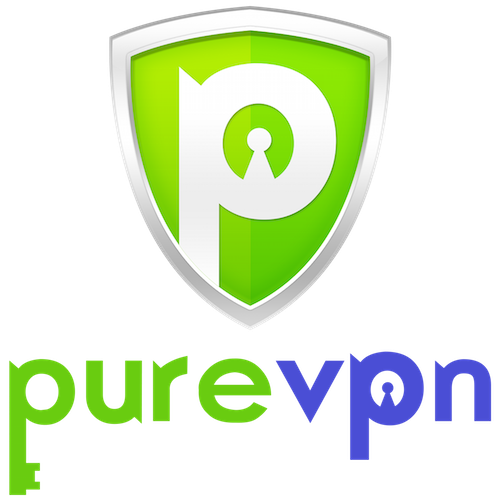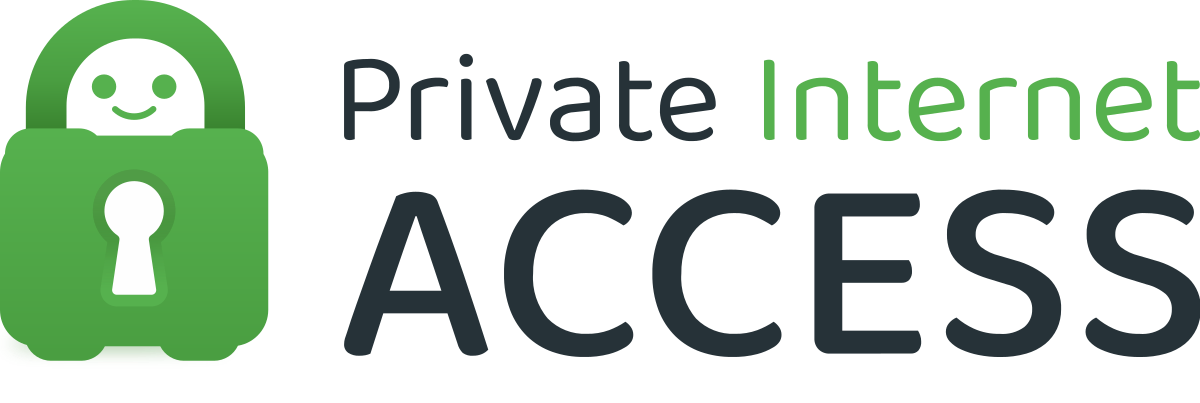Best VPN Software Programs and Services (2024)

- Always evades internet control in the PRC
- Keeps ahead of the Netflix VPN detection algorithm
- Benchmark tests show excellent speed

- More US city locations than its rivals
- Includes malware protection
- No-logs policy

- No limit on the number of devices you can connect at the same time
- SOCKS5 proxy, which its main rivals don’t have
- More VPN servers in more US cities to dodge blackouts
When the leaked NSA files revealed the scope of mass surveillance, everyone turned their eyes to Virtual Private Networks. The sharp spike in demand charged the VPN market, and it literally exploded overnight. What once was a niche competition turned into a downright melee.
This isn’t necessarily a bad thing since now we can hand-pick the best VPNs at very affordable rates. This is also bad because way too many providers are capitalizing on your fears of state surveillance and cybercrime, and offer nothing but a false sense of security wrapped in cyber jargon. This means it’s getting hard to tell gold from brass and assess contenders realistically.
It’s important to look past the sales-y babble and study the important features with a reasonable degree of suspicion. Before you study them, however, you need to know what matters most in a good VPN.
Best VPN Software Programs and Services
Some VPNs require a technically-intensive setup and fine-tuning process before you can even begin to use them. Others are cross-platform suites you can run on Windows, Mac, iOS, Android, and Linux devices, virtually hassle-free. My goal is to pinpoint the VPN providers that offer comprehensive software that’s both easy to use and advanced at the same time so that you can enjoy sheer simplicity – or tweak every bit of it if you wish.
If you’re after intuitive, but advanced software with posh looks, remember that you can never neglect other important features. Server locations, encryption protocols, privacy policies, connection speeds, availability of a kill switch, and DNS leak protection are equally – or more – important because:
- They define if your VPN leaks your data
- They affect the performance and speeds
Do you need A VPN?
Businesses rely on VPNs to let their employees access corporate networks securely, so why can’t you do the same for your private browsing? You can because it’s affordable, and you should because:
- Privacy – Most western countries are a part of the 14 Eyes alliance, which means ISPs enjoy the unfettered freedom to snoop on your online activities. Even worse, they can be compelled to hand that information over to law enforcement upon request. Using public Wi-Fi couldn’t be more dangerous as hackers target your financial data. So a VPN is an affordable tool that protects your privacy and ensures you’re browsing securely.
- Steaming and Gaming – BBC iPlayer, Sky GO, Netflix, and Hulu have uneven coverage across many countries. Steam, iTunes, and Google Play limit your access to content based on your IP, and a VPN can help remedy this injustice.
- P2P – Many ISPs apply traffic restrictions like line throttling to cap torrenting. With a VPN, the line throttling won’t kick in as your ISP can’t tell what you’re doing.
Considerations
- The quality of the software will only get you so far. It can be a visual masterpiece, but it’s worthless if the encryption is crap.
- Reliable providers offer optimized servers for streaming and bypassing geo-blocks, which is only possible if the server coverage is decent.
- Never overlook the laws in your current country of travel or residence. You need to have at least a superficial idea of what actions can get you in trouble. For example, you can land a hefty fine for illegal torrenting in Germany and Japan, while French ISPs install keyloggers to snoop on you.
- Finally, Netflix is cracking down on VPNs, so every now and then providers need to invent new tricks to bypass its blocks. The bottom line is that what works today might need a fix tomorrow, but the reliable providers are on it 24/7/365.
All VPNs on my list are fully-featured and use AES-256 encryption, which is currently the golden standard. If you travel frequently or want to run all your Internet traffic through a VPN, these providers will do a great job. Also, anyone trying to hack your Wi-Fi traffic on a public network would see nothing but scrambled gibberish.
These providers all support devices beyond the conventional Win, Mac, Android, and iOS operating systems, offer wide server coverage in dozens of countries, and generally, let you pay anonymously. If you’ve been contemplating a free VPN, make sure to check my in-depth overview first because too many free services leak or trade your private data.
Hope this helps, and have happy – and safe – browsing!
1. ExpressVPN

- Always evades internet control in the PRC
- Keeps ahead of the Netflix VPN detection algorithm
- Benchmark tests show excellent speed
If you’re an avid fan of Netflix or P2P torrenting, check out ExpressVPN, which is the hands-down fastest service, with impressive server coverage in 94 countries. They offer software for all platforms, and all their apps use OpenVPN, complete with AES-256 encryption, a kill switch, DNS leak protection, auto-connect, port forwarding, and shared IPs. Unlimited P2P torrenting and online gaming is lag-free.
Pros
- Installs on routers
- Simultaneous connection allowance of five devices
- Split tunneling
- Large choice of server location
- Very strong connection encryption
Cons
- One of the most expensive VPN services
- China blocks its main website (but not functionality)
- Live chat support is not always responsive
ExpressVPN is intuitive and flexible, so you can toggle any feature with ease. On a side note, they only allow three simultaneous connections, which is a tad restricting if you ask me. If you’re okay with that, you’ll appreciate that ExpressVPN is rock-solid on privacy. They accept Bitcoin and don’t log DNS queries or traffic data, while their British Virgin Islands location grants them exemption from the strict anti-piracy laws and surveillance of the 14 Eyes.
Their monthly subscription is pricey at $13, but the $60 bi-annual plan is quite reasonable. The annual plan is the best deal and comes in at $99.95. All subscriptions come with a generous 30-day refund policy.
2. NordVPN

- More US city locations than its rivals
- Includes malware protection
- No-logs policy
If you’re privacy-paranoid like me, you may want to try NordVPN, which offers a gazillion security features bundled up into one tightly wrapped package. Strong AES-256 encryption, Open VPN, zero-logs policy, and a kill switch are just the baseline here – NordVPN has all the bells and whistles to make your browsing secure. For example, they have double encryption technology and VPN into Tor. Top that off with a network of 830+ self-managed server locations and Panama-based headquarters, which grants them freedom from surveillance and pretty lax anti-piracy laws.
Pros
- A large number of servers
- Threat protection with a proprietary security system called CyberSec
- Split tunneling
- Obfuscated servers for China and other locations where VPNs are discouraged
- No-logs policy
- Automatic wi-fi protection
Cons
- Parts of the server network have poor download speeds
- No servers in India
- Onion over VPN can be slow
They allow up to six simultaneous connections, and the software is by far one of the most good-looking – and intuitive – suites. Oh yeah, and one that supports all the popular platforms. You’ll love how easy it is to switch servers with the pre-configured Ultra-Fast for gaming and streaming, and Ultra-Secure for privacy. NordVPN bypasses Netflix’s VPN blocks with grace and doesn’t cap your bandwidth when you’re P2P torrenting. Bear in mind that connections using double encryption can be slow, which is understandable.
Best for privacy, NordVPN is also affordable with a $70 annual plan, $42 bi-annual, and $12 monthly subscription, all backed by a generous 30-day refund policy.
3. IPVanish

- No limit on the number of devices you can connect at the same time
- SOCKS5 proxy, which its main rivals don’t have
- More VPN servers in more US cities to dodge blackouts
The best software for noobs is IPVanish, which offers excellent value for the money, too. It’s simple, self-explanatory, and flexible enough for both novice and advanced users. You can customize your experience, or just relax and enjoy its default settings. All of their fully-featured apps come with a kill switch, DNS leak protection, 256-AES encryption, SOCKS5 web proxy, and OpenVPN protocol. You can also view server stats, complete with speeds and bandwidth.
Pros
- Good at dodging blackouts on US sports streaming sites
- A large IP address pool
- Split tunneling available
- Strong IP leak protection
- IPVanish support is available around the clock via chat and email
Cons
- No app for Linux
- No browser extensions
- 30-day money-back guarantee only for the annual plan
- Prices increase after the first subscription period
- No malware or antivirus service
IPVanish software is cross-platform, but to get Android working, you’ll need to download an additional OpenVPN Connect app, which is not a con per se but does make for a few extra taps that you’ll need to make (but only once, and it’s during installation). You can run up to five simultaneous connections per account.
IPVanish offers excellent speeds and doesn’t cap your bandwidth. It allows HD streaming, P2P file-sharing, and unblocking of geo-restricted websites. They boast a highly reliable self-managed network of servers in 60+ countries so you can spoof pretty much anywhere, including into your favorite US Netflix. On the privacy front, it’s a US-based provider, but they keep no logs and manage their own servers, so your data doesn’t pass through third-party hands.
At $10 for a monthly subscription and $78 for the annual plan, IPVanish is one of the most affordable providers, with a reasonable seven-day refund policy.
4. PureVPN

- Excellent client with pre-configured modes for streaming, P2P, privacy
- Kill switch
- Support for wide range of protocols, including OpenVPN
An all-around winner for cross-platform support is PureVPN, which supports more than 50+ operating systems including routers, smart TVs, ROKU, Boxee, and more. You can connect up to five devices simultaneously, so it’s ideal for households. PureVPN boasts one of the largest networks of 750+ self-managed servers in 141 countries, so you can rely on all the consistently great speeds you need for online gaming or HD streaming.
Pros
- Excellent client with pre-configured modes for streaming, P2P, privacy
- Kill switch
- Support for wide range of protocols, including OpenVPN
- Great for newbies and experienced users alike
- Wide server coverage
- Good speeds
- 24/7 support
- Accepts Bitcoin
Cons
- No free trial
- 7-day money-back guarantee comes with restrictions
- No Netflix
- No BBC iPlayer
- Client is not as “one-click” as advertised, and troubleshooting requires technical skills
The software is sleek, intuitive, and offers extensive customization that even the technically challenged will quickly sort out because the add-ons are self-explanatory. You can choose protocols, and switch to servers optimized for P2P and streaming, as well as use secure FTP access, stealth browsing mode, or special connections for online banking.
They’re based in Hong Kong, which is good because there are no data retention laws there. You can also count on 256-bit AES encryption, OpenVPN, and unlimited bandwidth for P2P torrenting. They keep no activity logs, but do maintain some session logs for troubleshooting and might leak DNS. If you’re okay with that, you’ll find their pricing quite affordable. PureVPN will set you back $12 in a month-to-month plan, $54 for a bi-annual subscription, and $72 for a two-year plan. They also offer a three-day free trial and a seven-day money-back guarantee.
5. Private Internet Access

- More locations in the USA, aims to provide a server in every state
- Makes excluding apps and sites from the VPN very easy
- Real customer service, not just a chatbot
One of the most affordable VPNs on the list is Private Internet Access. PIA has a very clean, minimalist interface that lets you customize settings with minimum effort on your part. But there’s more than meets the eye – PIA allows for up to five simultaneous connections and has software for 34 platforms (desktop, mobile, routers, you name it). It’s straightforward in installation and setup and comes with loads of perks you can tweak. Count on unlimited P2P torrenting and great speeds for gaming and streaming, a kill switch, an ad blocker, a malware blocker, and DNS leak protection.
Pros
- PIA is one of the few VPNs to have a server in China
- Security features include malware, tracker, and ad blocker
- Good choice of dedicated IP address locations
- Antivirus add-on
- A strong no logs policy
- Easy to use VPN app functionality
Cons
- Can’t get into Amazon Prime or Hulu
- Doesn’t state how many servers it operates
Private Internet Access has an incredible network of 3,250 servers in 25 countries and works great for spoofing into the US and unblocking Netflix.
Privacy-wise, PIA uses OpenVPN and 256-bit AES encryption, sticks to a strict zero-logs policy, and accepts Bitcoin and gift cards for anonymous payments. The company is based in the US, however, so if you have serious privacy concerns, you should take the US data retention laws into account.
PIS is cheap, and the $40 annual, $37 bi-annual, and $7 monthly plans all come with a seven-day money-back guarantee.
6. VPNArea

- The cell phone app worked seamlessly
- Customer service seemed genuinely interested in helping
- 24/7 Live Chat
VPNArea offers a great combination of price, privacy, and performance. Their software comes with plenty of bells and whistles including a kill switch, DNS leak protection, server speed test, auto IP change, dedicated IP address, auto-connect, and port forwarding. If you run into a problem, their customer service is extremely patient and helpful. That said, they really need to update their installation instructions.
Pros
- The cell phone app worked seamlessly
- Customer service seemed genuinely interested in helping
- 24/7 Live Chat
- Privacy is protected; they’re not part of the 14 eyes and don’t log data
- Fully autonomous iOS app for iPhone/iPad on App Store
- Desktop app for Mac and Windows (no always-on-top, no leaks, new design)
Cons
- Download instructions confusing; must be followed closely for program to work
You can run up to six simultaneous connections, and the cross-platform software is very flexible and polished, so if you’re like me, you’ll appreciate the ability to fine-tune your experience. VPNArea is geared toward online gaming, HD streaming, and P2P torrenting, so expect reliable performance during resource-intensive tasks.
They’re based in Bulgaria and host their servers in Switzerland, which is a great combination in terms of privacy. Top that off with a zero-logs policy, OpenVPN, AES 256-bit encryption and you’re in for safe browsing backed by speedy servers in 60+ countries.
They offer the $10 monthly, $50 bi-annual, and $59 annual subscriptions, complete with a seven-day refund policy, which makes them one of the most affordable contenders on the list.